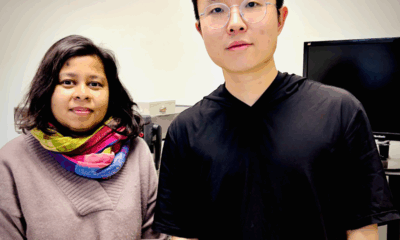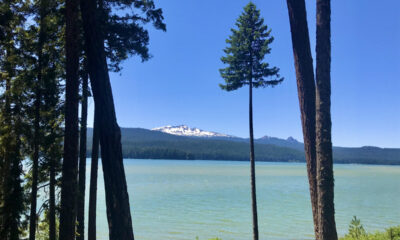Education
Educators Innovate Sustainability Training for Future Teachers

A new approach to environmental and sustainability education is taking shape at McGill University, where educators are rethinking how future teachers learn about climate change. Blane Harvey, an Associate Professor in the Department of Integrated Studies in Education and head of the Leadership and Learning for Sustainability Lab, emphasizes the need for innovative teaching methods that not only impart knowledge but also inspire action among students.
Over the past four years, Harvey has collaborated with both undergraduate and graduate students, as well as community members, to develop and deliver new courses focused on sustainability. This collaborative model marks a departure from traditional course design, where a single instructor typically curates the curriculum. Instead, Harvey’s team has engaged various stakeholders in the co-design process, fostering a richer and more inclusive educational experience.
Engaging Diverse Perspectives in Course Design
Stephanie Leite, a PhD candidate and Vanier scholar, has played a key role in the initiative, co-creating and teaching multiple courses. She highlights the significance of incorporating diverse backgrounds and viewpoints, particularly when addressing complex issues like climate change. “Sustainability isn’t just a scientific issue; it also evokes strong emotional and psychological responses, especially among youth facing eco-anxiety and depression,” Leite explained.
Leite pointed out that climate change disproportionately affects those who contribute the least to the problem, raising important justice concerns. Involving a range of perspectives not only enriches course content but also facilitates interactive classroom activities, as educators aim to model collaboration.
The research team believes that, with adequate institutional support, their innovative approach to co-creating and co-teaching sustainability courses could be replicated across other departments at McGill. They cite the Sustainability Education Fellows program as a positive example of collaborative course design, where faculty members collaborate to develop sustainability-focused curricula.
Addressing Challenges in Sustainability Education
As the team continues to refine their methods, they also aim to address various structural challenges they have encountered. These include securing funding for co-design partnerships, navigating course cross-listing across departments, and adhering to strict grading guidelines. Harvey acknowledges that adopting this model requires faculty members to relinquish some academic authority, which can be a daunting prospect.
Despite these challenges, Harvey remains committed to advancing this educational model. He recently secured a grant from the Social Sciences and Research Council of Canada to lead an international study on campus-wide initiatives promoting new teaching and learning approaches in sustainability education.
By reimagining how educators are trained, Harvey and his team hope to inspire future teachers to foster environmental awareness and action in their own classrooms. As they explore new possibilities for collaboration and innovation, the initiative at McGill University could set a precedent for sustainability education worldwide.
-

 Politics4 weeks ago
Politics4 weeks agoSecwepemc First Nation Seeks Aboriginal Title Over Kamloops Area
-

 World5 months ago
World5 months agoScientists Unearth Ancient Antarctic Ice to Unlock Climate Secrets
-

 Entertainment5 months ago
Entertainment5 months agoTrump and McCormick to Announce $70 Billion Energy Investments
-

 Science5 months ago
Science5 months agoFour Astronauts Return to Earth After International Space Station Mission
-

 Lifestyle5 months ago
Lifestyle5 months agoTransLink Launches Food Truck Program to Boost Revenue in Vancouver
-

 Technology3 months ago
Technology3 months agoApple Notes Enhances Functionality with Markdown Support in macOS 26
-

 Lifestyle3 months ago
Lifestyle3 months agoManitoba’s Burger Champion Shines Again Amid Dining Innovations
-

 Top Stories2 months ago
Top Stories2 months agoUrgent Update: Fatal Crash on Highway 99 Claims Life of Pitt Meadows Man
-

 Politics4 months ago
Politics4 months agoUkrainian Tennis Star Elina Svitolina Faces Death Threats Online
-

 Sports5 months ago
Sports5 months agoSearch Underway for Missing Hunter Amid Hokkaido Bear Emergency
-

 Politics5 months ago
Politics5 months agoCarney Engages First Nations Leaders at Development Law Summit
-

 Technology5 months ago
Technology5 months agoFrosthaven Launches Early Access on July 31, 2025





















